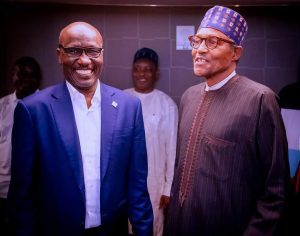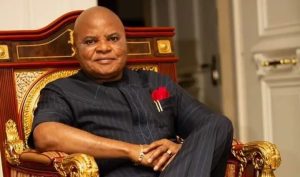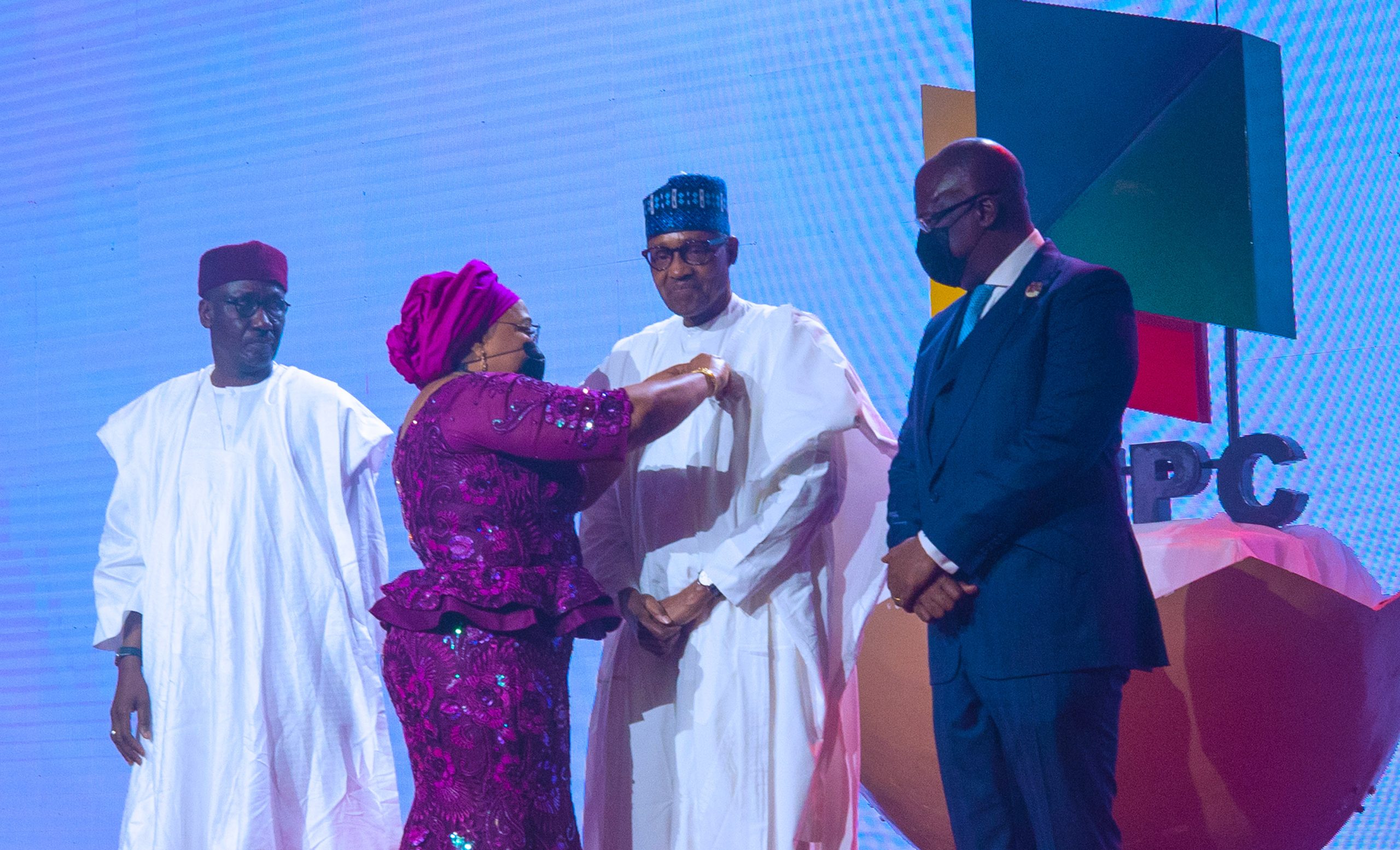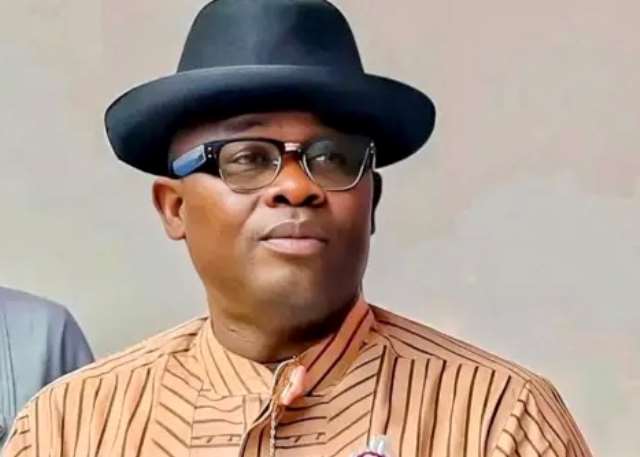By Dele Akinsola
The judicial pronouncement of a Federal High Court in Abuja, “annulling’ ‘a presidential nomination and appointment of the non-executive Chairman of the Board of the Nigerian National Petroleum Company Ltd (NNPCL) has, no doubt, stoked outrage and rapid-fire reactions and condemnation from Nigerians and stakeholders in the nation’s oil and gas industry.
Again, the nation’s media space was awash by news of a judgment from the court, intervening or interfering in a purely Executive arm of government’s constitutional duty and the prerogative of nominating a person into the board of the NNPCL as a non-executive chairman for Senate’s consideration, confirmation and possibly appointment or removal.
In the annals of political appointments and administration, even after inauguration, appointees continued stay in office is at the mercy or pleasure of Mr. President, the appointor and this is not subject to any legal tussle.
The president, in forwarding the nomination to the lawmakers as in the case of Sen. Ararume, derived authority from the 1999 Constitution in the following sections:
“5(1) Subject to the provisions of this Constitution, the executive powers of the Federation — (a) shall be vested in the President and may, subject as aforesaid and to the provisions of any law made by the National Assembly, be exercised by him either directly or through the Vice-President and Ministers of the Government of the Federation or officers in the Public Service of the Federation.
“Also, the cabinet and the larger administrative team, except where specifically established by the constitution, hold their appointments at the pleasure of Mr. President.
“Section 147 provides that “(1) There shall be such offices of Ministers of the Government of the Federation as may be established by the President.
“Sub-section (2) restates the exclusivity of the president’s power to hire minister (and other appointees) by stating that “any appointment to the office of Minister of the Government of the Federation shall, if the nomination of any person to such office is confirmed by the Senate, be made by the President.”

Also, the Petroleum Industry Act of 2022 (PIA) unambiguous states in Section 14 about the President’s powers to suspend or remove members of the NNPCL board and the conditions that could result in such removal or suspension.
The role of the president is clear to among others ensure the stability and corporate governance of the company as well as give it a free hand to operate a full-fledge CAMA company to attract investments and loans for its operations; declare profits and possibly loss and be accountable to stakeholders in line with international best practices.
It is, therefore, incensing and nauseating for a nominee to take his appointor or nominator to court to over his removal or withdrawal of his nomination from the Senate before screening and confirmation.
In U.S. for example, the President nominates someone, sends his name to the Senate, if successfully screened and confirmed, then he becomes appointable. In our own case in Nigeria, the president can at any time remove anybody or appointees. Again, not everybody that the president nominates that pass through the Senate that were approved.
The question then is, if somebody was rejected by the Senate, will he or she now go to court for rejecting him or her?
The Ararume case is giving an impression of instability and sending wrong messages to NNPC’s international partners and those that want to work with it. It is sending a wrong signal to the international community because NNPCL is now a commercially-driven company and not a state-run oil firm.
A wistful look at the Senator Ifeanyi Ararume’s defiance to President Muhammadu Buhari’s authority and the good gesture of considering his nomination in the first place for the plum job of non-executive chair of the NNPC Ltd Board has raised some germane questions.
*How sensible, logical or lawful it is for a nominee to go to court after the President changed his mind and nominated another person for consideration in the Senate as replacement?
*Does the President not have the powers under the 1999 Constitution to nominate, appoint and remove his appointees?
* Did Ararume’s nomination scale through the Senate and was inaugurated by the President to function in the capacity of the Chairman ?

*If his nomination was nullified in the President’s wisdom and replaced by another person, has the President committed any infraction against the constitution and Ararume?
*Does Ararume have good grounds for challenging his replacement when he had yet to assume office and oath of office and allegiance administered on him?
*On what grounds did the court award a N5 billion damages in his favour against the Federal Government?
*Does the ruling not amount to an erosion of the executive powers of the president and meddlesomeness on the part of the court in the exercise of the president’s functions?
These are germane questions on the lips of Nigerians as they continue to express disapproval and discontent with the judgment.
Justice Inyang Ekwo had ruled in a N100 billion suit filed by Ararume against the President challenging his replacement on the board by President Buhari in January 2022.
Last week, the court awarded N5 billion as damages to Ararume while sacking the current board chair, Sen. Margery Chuba Okadigbo and directing Ararume’s reinstatement.
Reactions, to say the least, to the development can be described as appropriate outbursts of public indignation against the judicial pronouncement which many believed might have been designed to embarrass the president.
In short, the judgment smacks of the judiciary prying, intruding, and meddling in a pure executive matter in recruiting some hands to help the president in the performance of his duties.
The verdict, which has been pilloried by the media and stakeholders as well as civil society groups, is equally a usurpation of the powers of another arm of government, an aberration and a total stupefaction as well as a recipe for anarchy and break down of the rule of law.
As evidently pointed out about the constitutional powers of the president on appointments, no arm of government should intrude or tend to superintend or supervise another. In a constitutional democracy, the legislative, the executive headed by the President and the judiciary should work harmoniously and not at cross-purposes; not seek to revoke or cancel what the other one has done but interrelate, interdependent with one another and give room for overlapping in the discharge of their functions as one government and not three distinct federal government for the common goal of providing good governance, dividends of democracy and a good political economy.
For instance, the legislative arm makes laws and also considers bills for legislation from the executive, the executive executes policies, laws and projects, while the judiciary interprets laws, and give sound judgments that will help the political economy framework and not to put spanners in the wheel of governance of which they are part and parcel of.
Largely, judicial interventions should come when there is a disagreement or face-off between the executive and the legislature and cases of the violations of the constitution and the rights of the citizens as an arbiter. There must also be checks and balances for each branch of government to “check’’ the others. But for the court to pry into a matter between the president and a nominee whose nomination was withdrawn is unwholesome. In dispensing justice, it must meet some standards of “reasonableness’’.
The essence of any judicial intervention is to ensure orderliness and good conduct in government’s affairs.
Evidently from the foregoing, President Buhari, who also doubles as the Minister of Petroleum, wields enormous powers to formulate, monitor, and administer government policies and therefore, Ararume removal can’t be adjudged as illegal and should not warrant court’s compelling restoration of him as chair of the oil company.
For instance, in the disputes between the federal government and ASUU over non-payment of about nine months of strike, the court exercised discretion and restraint and tried to play the role of a neutral “arbiter’’.
The Ararume saga is aptly captured by a man’s post on the social media as he made a jocular remarks thus: “When a man says his masquerader will dance and decides to withdraw him from dancing in the public, what offence has he committed?
Interestingly and speedily too, the Federal Government while reacting to the court order, has indicated its readiness to appeal the judicial sack of Sen. Margery Chuba Okadigbo and the reinstatement of Ararume.
In a counter-narrative, the judgment must be viewed against the backdrop of its implications and effects on the industry and the nation’s economy.
First, it is capable of setting the hands of the clock of the reforms in the industry backwards and cast a slur on Nigeria’s image in the international community.
It is a glaring and incontrovertible fact is that the oil sector is still suffering from serious “hemorrhagic strokes’’ oil bunkering, theft, vandalism and gas flaring and, therefore, everything should be done to stabilize the industry and ensure the fructification of the Buhari’s reforms of the sector.
Other implications are the likely disruption of foreign investment drives by the NNPCL and erosion of investors’ confidence.
NNPCL as a CAMA company is expected to operate without political or judicial interference in whatever form.
A marked difference between NNPC of old and the new company is the compelling high level of corporate governance compliance required of it and its management as it operates within the framework of the Petroleum Industry Act 2022.
On the resolve of the Buhari government to appeal the judgment, due process must be allowed take its course while the status quo ante remains. The Attorney-General of the Federation and Minister of Justice should swing into action, file a stay of execution, and an appeal as well as get the court acquainted with the fact that Ararume was nominated but not inaugurated as a non-Executive Chairman which might have shielded from the court.
His journey started with nomination and ended at nomination stage, not screened or confirmed by the Senate. Quo erat demonstrandum (Q.E.D). Awarding N5 billion of tax payers’ money for services not rendered or job not done is outrageous and defies logic and common sense.
Undoubtedly, the president must have good reason(s) for withdrawing Ararume’s nomination. I think Ararume’s matter or journey ended at nomination stage, not screened or confirmed by the Senate.
However, in the overall national interest, efforts must be geared towards giving a fillip to the team appointed by Buhari including the GCEO of NNPCL, technocrat Mele Kyari and Sen. Margery Cuba Okadigbo, whose pedigree and profile as a lawyer with over 40 years experience and leadership in some critical spheres of life, to consolidate on the unprecedented and stellar achievements so far recorded as the Chairman of the NNPCL board. Nothing should be done to distract them but to keep their eyes on the ball in the task of keeping the oil and gas industry afloat and on an even keel as the mainstay of the nation’s economy.
As a clincher, it is hereby submitted that the judiciary in a democracy is expected and should rather play a complementary role by operating within its powers and not take on the authority of the President or the Executive by delivering obnoxious and embarrassing judgments.
Of course uncompromisingly, where there are brazen abuses of power, tranny and impunity and violations of the rule of law, the judiciary should stamp its authority and save the nation’s democracy from sliding into dictatorship.
Mr. Akinsola, former deputy editor News Agency of Nigeria, NAN is also the editor of the Per Second News
























Leave a comment